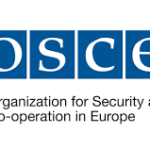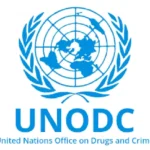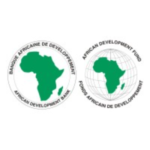Are you searching for law and criminology jobs in Malawi? Ntchito.com is your premier destination for the most current and active positions in the legal and criminal justice sectors across the country. Whether you’re interested in roles within legal firms, law enforcement agencies, the judiciary, or forensic services in major cities like Lilongwe and Blantyre, our platform connects you with leading employers seeking skilled professionals. Advance your career by exploring diverse opportunities in legal research, criminal investigation, courtroom advocacy, and more within Malawi’s robust legal framework. Additionally, enhance your expertise with Courses & Trainings (Funded) and gain practical experience through Internship Opportunities. Stay ahead in your field with Ntchito.com’s comprehensive listings and resources tailored to law and criminology professionals.

Senior Legal Counsel

Principal Legal Counsel

Chief Legal Counsel

Legal Officer






































Director General (DG)





Assistant Registrar (Legal)














Land Registrar

FAQs for Law and Criminology Jobs in Malawi
What educational qualifications are required for advanced law and criminology positions in Malawi?
Advanced positions in law and criminology in Malawi typically require a solid educational foundation combined with relevant professional experience. Candidates should possess at least a bachelor’s degree in Law (LLB), Criminology, Criminal Justice, or a related field. For higher-level roles, such as senior legal advisors, prosecutors, or forensic analysts, a master’s degree or specialized certifications (e.g., in Forensic Science or Cybercrime) may be necessary. Additionally, being a member of the Malawi Law Society or holding certifications from recognized institutions can significantly enhance a candidate’s qualifications and competitiveness in the job market. For those seeking further education, explore Bachelors Scholarship and Masters Scholarship opportunities to support your academic advancement.
Beyond formal education, practical experience is highly valued. Employers look for individuals who have hands-on experience through internships, clerkships, or previous employment in legal firms, law enforcement agencies, or judicial offices. Participation in Internship Opportunities can significantly strengthen your application by providing real-world experience and networking opportunities within the legal and criminology sectors.
How is the demand for law and criminology professionals evolving in Malawi’s legal and criminal justice sectors?
The demand for law and criminology professionals in Malawi is steadily increasing, driven by the expansion of the legal system, ongoing reforms in the criminal justice sector, and the need for specialized expertise in areas such as cybercrime, human rights law, and forensic science. As the country invests more in strengthening its legal institutions and law enforcement capabilities, the need for skilled lawyers, criminologists, forensic experts, and legal advisors grows correspondingly. This trend is further fueled by the rise of private legal practices and international collaborations that require robust legal support and expertise.
In addition to traditional legal roles, there is a growing demand for professionals in emerging fields such as cyber law, environmental law, and human trafficking prevention. This diversification creates a broad spectrum of job opportunities for law and criminology graduates. Staying informed about these industry trends through resources like Job in Malawi and Energy Sector Jobs in Malawi can help candidates identify emerging opportunities and align their skills with market demands.
What key skills and competencies are essential for success in law and criminology roles in Malawi?
Success in law and criminology roles in Malawi requires a blend of technical expertise and soft skills. Key technical skills include a deep understanding of Malawian law, legal research and writing, courtroom advocacy, and familiarity with criminal investigation techniques. Proficiency in using legal research databases, case management software, and forensic tools is also essential for many roles. Additionally, a strong grasp of ethical standards and the ability to apply them in various legal contexts is crucial for maintaining professional integrity.
On the soft skills front, employers value excellent communication and negotiation abilities, critical thinking, and problem-solving skills. Effective interpersonal skills are essential for working collaboratively with clients, law enforcement officers, and other stakeholders. Time management and the ability to handle multiple cases or projects simultaneously are also important, especially in fast-paced legal environments. Enhancing these skills through Courses & Trainings (Funded) and Soft Skills Training can make candidates more attractive to potential employers and facilitate career advancement.
How can law and criminology professionals in Malawi advance their careers and stay competitive in the job market?
Career advancement for law and criminology professionals in Malawi involves a strategic combination of education, skill development, and networking. Pursuing advanced degrees or specialized certifications can open doors to higher-level positions and specialized roles within the legal and criminal justice sectors. Engaging in continuous learning through Training Opportunities helps professionals stay updated with the latest legal reforms, criminological theories, and technological advancements in forensic science.
Networking is another critical component for career growth. Building connections with industry peers, attending legal and criminology conferences, and participating in professional associations can provide valuable insights and job leads. Additionally, gaining experience in diverse roles within the legal and criminal justice system, such as working in different types of legal practices, law enforcement agencies, or judicial offices, can enhance a professional’s versatility and marketability. Utilizing resources like Internship Opportunities and Consultancy Projects can also provide practical experience and facilitate transitions into more advanced roles.
What are the common challenges faced by law and criminology professionals in Malawi, and how can they overcome them?
Law and criminology professionals in Malawi often encounter challenges such as limited access to advanced legal resources, bureaucratic hurdles, and the complexities of navigating the legal system. Limited resources can impact the quality and efficiency of legal services and criminal investigations, making it essential for professionals to be resourceful and innovative in their work. Additionally, dealing with bureaucratic processes and ensuring compliance with evolving legal standards can be time-consuming and require a high level of expertise.
To overcome these challenges, professionals can seek out continuous education and training to stay informed about the latest laws, best practices, and technological advancements. Engaging in Courses & Trainings (Funded) can enhance knowledge and skills, making it easier to navigate complex legal environments. Building a strong professional network through Networking Strategies for Job Seekers can provide support and access to resources that address these challenges. Additionally, advocating for better infrastructure and technological investments within the legal and criminal justice sectors can contribute to more efficient and effective practices in Malawi.